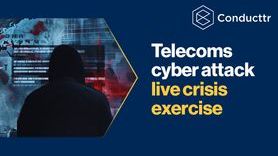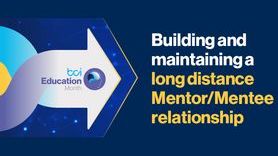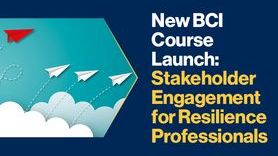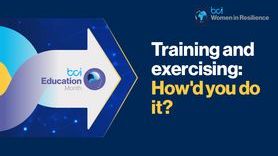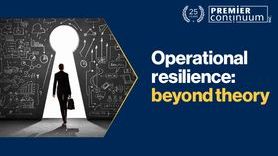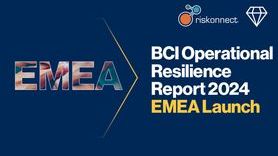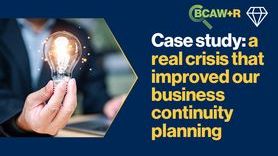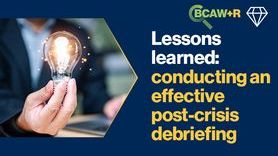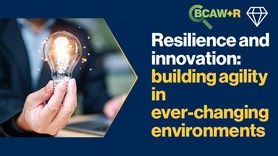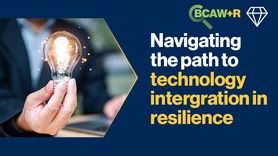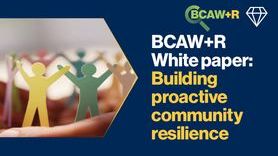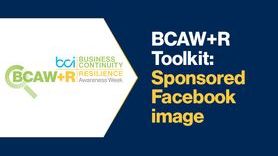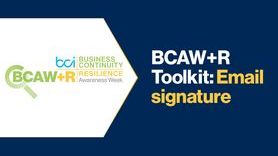BCI Mentoring showcase: Chloe Hurst MBCI
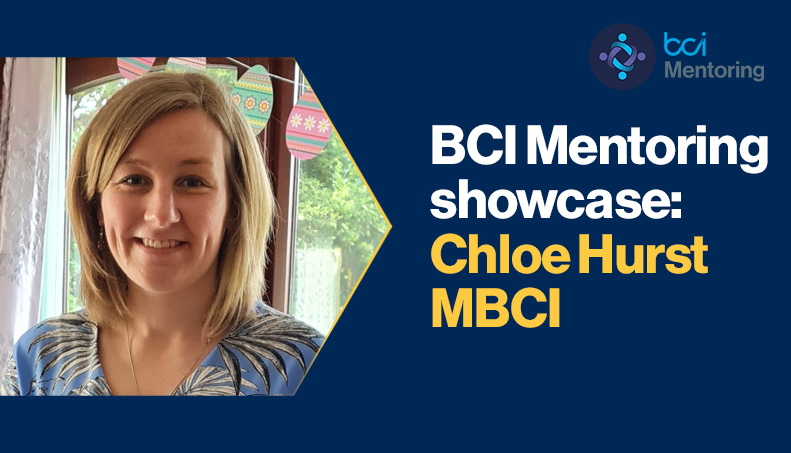
For many professionals, the mentoring relationship is a key element in their career development, particularly as it allows personalised guidance from an expert in your sector, information on how to develop your industry-specific skills, and the opportunity to increase your networking pool.
In this series of articles, we will take a look at a few stand-out examples of those who have used BCI Mentoring.
Chloe Hurst MBCI is the Business Continuity Manager at East Midlands Airport. For Chloe, joining BCI Mentoring was an opportunity to discuss ways of working with an experienced professional in business continuity and emergency planning, in particular someone who has implemented a business continuity management system within their organization.
At the start of the process, Chloe had a number of clear goals in her mind, including:
- To achieve the CBCI qualification, followed by the MBCI
- To implement a business continuity management system in a category one organization
- Career progression
- Improve knowledge of business continuity and how business continuity management systems can be implemented. To gain support, in terms of ensuring that business continuity templates would suit the organization’s best practice requirement.
- To become more involved in the BCI and learn from others’ experiences.
Chloe’s mentor, Russ Paramore FBCI, noted these goals and set about to help Chloe achieve them.
“At the start of the mentoring programme, my mentor asked what I wanted to achieve from the sessions. These objectives were regularly reviewed. The frequency of mentoring sessions were also amended to suit the objective requirements,” says Chloe.
The benefits of BCI Mentoring
Chloe adds that “BCI Mentoring significantly helped me progress my career,” by providing the opportunity to undertake further qualifications, including the CBCI, MBCI, and other training courses, whilst being supported.
In addition to this, Chloe outlines that it also offered an opportunity to reflect on career achievements through participation in the BCI Awards, along with the establishment of new goals and objectives.
“Being able to discuss challenges and current working practices has been invaluable, and Russ provided professional advice and support by drawing from his own experiences.”
Regarding the format of the sessions, Chloe outlines that they were informal but with clear objectives to be achieved. The frequency of the meetings was also adapted to suit the objectives but were flexible enough to take work pressures and deadlines into account. “It was a great opportunity to discuss any business continuity/resilience documentation, any challenges being faced, as well as career development opportunities.”
The mentoring relationship
One of the many benefits of having a mentor in the business continuity and resilience sector is the option to access their experience developed from years in the sector and apply it to your own career journey.
“Through the guidance and support of my mentor, business continuity documentation was developed and adapted to suit the organization’s needs. This was in addition to support on how to implement a business continuity management system during the global pandemic,” says Chloe.
Chloe also adds that mentors can provide learning from experiences working with different organizations, noting that it is particularly useful to hear about the challenges and obstacles to overcome in the implementation of business continuity as well as the success stories and real life implementation of plans in both category one and two organizations.
What advice would you share with others?
“Mentoring is an invaluable tool to progress your career by learning from others’ experiences and allowing the opportunity to work through challenges, which enables confidence to grow. Mentoring allows you to discuss real time challenges and receive guidance and support to overcome those challenges, resulting in increased confidence and reassurance. It is also bespoke to your personal needs whereas training courses are more structured and often don’t allow the time to work through current/upcoming challenges within your organization.
Sign up for a mentor and make the best use of people’s experiences and knowledge to help support you on your business continuity journey.”
Final comments from the mentor
“I first met Chloe shortly after she was employed by the Fire and Rescue Service. I was a speaker at the Emergency Services Show and Chloe was in the audience. Following the presentation, Chloe approached me and we exchanged details. Not too long afterwards our mentoring relationship commenced.
Chloe was new to business continuity and had lots of questions regarding processes, as well as her own personal development. It was obvious from our first meetings that Chloe was going to progress well in her role but more importantly in her business continuity career.
Chloe’s hard work led to her being awarded the BCI Europe Continuity and Resilience Newcomer Award in 2021, as well as achieving the CBCI and then upgrading her membership to MBCI. Chloe was also promoted within her role before progressing her career and becoming the Business Continuity Manager at East Midlands Airport.
The mentoring relationship has certainly reaped significant benefits for Chloe,” concludes Russ Paramore.




